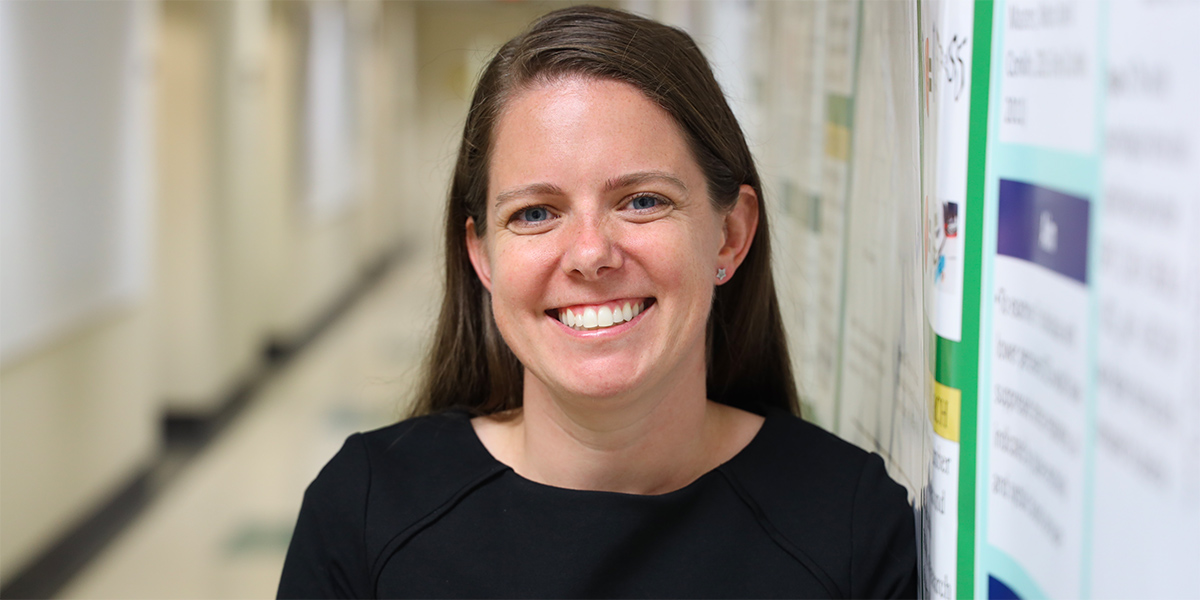Meet Baylor’s nationally recognized researcher on stress and health

It’s Dr. Annie Ginty’s job to study stress — a subject we can all relate to. In fact, when she tells people her area of expertise, they generally joke that they’d be excellent subjects for her research because of all of the pressures they face.
More specifically, Ginty seeks to better understand the links between the brain, the heart and stress.
“Stress is something that may appear different for everyone, but it happens in all of our lives,” Ginty said last year on “Baylor Connections,” sharing one example out of many of her approach to research. “While people’s individual responses are different, stress is a predictor of the development of cardiovascular disease — but not everyone who has stress gets cardiovascular disease. My research … is trying to figure out what it is about someone’s responses in their brains or their cardiovascular system that is different from someone else’s, and to identify what it is to develop interventions to prevent the increased risk.”
An assistant professor of psychology and neuroscience at Baylor since 2016, Ginty’s resume is impressive. She was named a “Rising Star” by the Association of Psychological Science in 2018, and earlier this year, she received a highly-competitive K01 Research Scientist Development Award from the National Institutes of Health. One recent research project looked at how physiological responses to stress can impact cardiovascular responses; another studied people’s response to the COVID-19 pandemic.
Ginty also equips people with practical tips to understand, process and cope with stress. Last year, her research led to the release of a video series aimed at helping viewers understand the impact of stress and develop coping mechanisms. The project grew from her research into biological responses to stress and adaptation during a potentially stressful transition period — in the case of this project, a student’s transition to college. The videos (found here, here and here) feature students discussing stressors and their response to it, and share a variety of tips to help people deal with and re-frame the stressors.
Sic ’em, Dr. Ginty!

